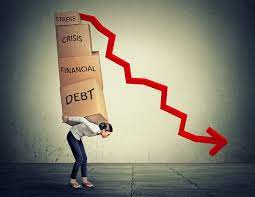When the World’s Money Gets Wobbly, Here’s How Kiwis Can Keep Their Cool
Welcome to 2025 – where one morning the headlines scream “tariffs are up,” stock markets crash, and everyone’s panicking… and by lunch the next day, it’s all reversed (except for China), and markets are suddenly partying like it’s 1999. The S&P 500 jumped 9.52% in a single day – one of the biggest spikes since WWII. Wild, right?
And just when you think things are settling, bam – markets slump again. Bonds are shaky, the US dollar is faltering, and financial experts warn it’s a sign of something deeper. It’s like trying to drink from a firehose of economic chaos.
In this new normal, where geopolitics move faster than your shares trading app can load, it’s easy to feel overwhelmed. But here’s the truth: you don’t have to be an economist to weather the storm. You just need a plan – one that’s about your life, not the headlines. Here’s how to stay steady when the financial world feels anything but.

1. Limit the Doomscrolling – Seriously
It’s easy to fall into a habit of checking financial news all day – and it feels like being prepared. But too much of it just fuels anxiety, especially when markets are reacting to sudden political decisions, like surprise tariffs or trade wars.
Kiwibank’s senior economist Mary Jo Vergara summed it up perfectly: “Uncertainty leads to inaction, and inaction leads to no activity.” If businesses are too spooked to hire or invest, our recovery can stall. But businesses are resilient. They adapt. And they’re already looking to create new trade partnerships beyond the US.
So here’s your move: stay informed, yes. But don’t drown in it. Try checking news once in the morning, then let it go for the day. Life doesn’t need to be lived on edge.
2. Interest Rates Are Dropping – Time to Use That to Your Advantage
While global drama isn’t ideal, it has led to lower interest rates here at home. The Official Cash Rate (OCR) is dropping, and some experts predict we’ll see sub-5% mortgage rates again.
David Cunningham from Squirrel says now’s the time to be smart. Lock in those rates, but stagger your mortgage terms – a bit for one year, some for two, some for three. That way, you protect yourself no matter which way rates go.
And here’s a smart Kiwi hack: if you’re already used to paying higher rates, keep those payments the same even as your interest drops. You’ll chip away at your mortgage principal faster and save thousands in the long run. Even a 50/50 split – half the savings to your pocket, half to your mortgage – can shave years off your home loan.
3. Use a Crisis to Check In, Not Freak Out
When headlines scream “economic crisis”, it’s tempting to act fast. But by the time the media’s reporting on it, the big moves have already been made.
Instead of reacting, take it as a moment to pause and reassess. Are your goals still the same? Are you still on track to buy a home, start a business, retire early, or just build financial security?
If your plans are long-term, you probably don’t need to change anything. Investment is about the long haul – 5 to 10 years minimum. So if you’ve got time, don’t let short-term noise throw you off your path.
4. Diversify Your Skills – and Maybe Your Income Too
The job market is… rough. And if business confidence keeps taking a hit, it could get tougher before it gets better. The hope is that we’ll see improvement by the back half of 2025.
In the meantime, your best investment? You.
If you’ve got a job, step up. Volunteer for important projects. Learn the skills your workplace values most. There are heaps of free courses online – from Open Polytechnic to global platforms like Coursera.
If there’s a chance to earn a little side income, take it. Even a few hundred bucks here and there can ease the pressure. Diversifying your income is like diversifying your investments – it adds stability.
5. Don’t Panic Over Your KiwiSaver
Seeing your KiwiSaver balance drop is nerve-wracking. But it’s also normal. That drop? It’s volatility – not failure. Long-term investing needs to ride the ups and downs to grow.
KiwiSaver funds are spread across hundreds, even thousands of investments – including shares, bonds, infrastructure, and cash. It’s not just one company’s fate you’re tied to, but the economy as a whole. And the economy has been through worse. It always rebounds.
Financial expert Aaron Klee from AMP reminds us: markets have survived Y2K, the GFC, the pandemic – and now, tariff whiplash. “The market figures it out and moves forward.”
His advice: stick to your plan. Don’t shift your KiwiSaver or investments out of panic. The worst-performing investors are often the ones who try to time the market or chase quick wins.
Final Thought: Your Money, Your Way
In a world where the rules seem to change by the hour, it’s more important than ever to focus on what you can control. Forget the chaos of global headlines for a moment and ask yourself: what do you need? What do you want your money to do for you?
If you stay focused on those answers – and build your plan around your goals, not the noise – you’ll be far better off than those trying to keep up with every twist and turn of the financial news cycle.
-Tin Bureau


